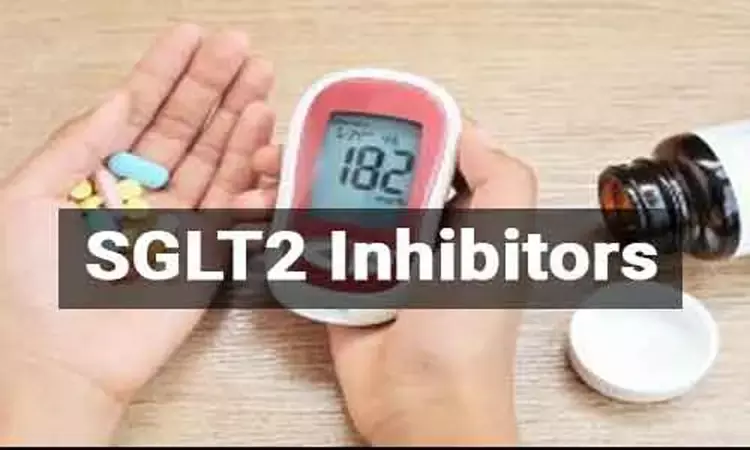- Home
- Medical news & Guidelines
- Anesthesiology
- Cardiology and CTVS
- Critical Care
- Dentistry
- Dermatology
- Diabetes and Endocrinology
- ENT
- Gastroenterology
- Medicine
- Nephrology
- Neurology
- Obstretics-Gynaecology
- Oncology
- Ophthalmology
- Orthopaedics
- Pediatrics-Neonatology
- Psychiatry
- Pulmonology
- Radiology
- Surgery
- Urology
- Laboratory Medicine
- Diet
- Nursing
- Paramedical
- Physiotherapy
- Health news
- Fact Check
- Bone Health Fact Check
- Brain Health Fact Check
- Cancer Related Fact Check
- Child Care Fact Check
- Dental and oral health fact check
- Diabetes and metabolic health fact check
- Diet and Nutrition Fact Check
- Eye and ENT Care Fact Check
- Fitness fact check
- Gut health fact check
- Heart health fact check
- Kidney health fact check
- Medical education fact check
- Men's health fact check
- Respiratory fact check
- Skin and hair care fact check
- Vaccine and Immunization fact check
- Women's health fact check
- AYUSH
- State News
- Andaman and Nicobar Islands
- Andhra Pradesh
- Arunachal Pradesh
- Assam
- Bihar
- Chandigarh
- Chattisgarh
- Dadra and Nagar Haveli
- Daman and Diu
- Delhi
- Goa
- Gujarat
- Haryana
- Himachal Pradesh
- Jammu & Kashmir
- Jharkhand
- Karnataka
- Kerala
- Ladakh
- Lakshadweep
- Madhya Pradesh
- Maharashtra
- Manipur
- Meghalaya
- Mizoram
- Nagaland
- Odisha
- Puducherry
- Punjab
- Rajasthan
- Sikkim
- Tamil Nadu
- Telangana
- Tripura
- Uttar Pradesh
- Uttrakhand
- West Bengal
- Medical Education
- Industry
SGLT2 inhibitors reduce atrial fibrillation progression in Diabetes, finds study

China: The use of SGLT2 inhibitors in type 2 diabetes (T2D) patients may help in atrial fibrillation (AF)/atrial flutter (AFL) reduction, suggests a recent study in the journal Cardiovascular Diabetology.
This reduction benefit is independent of systolic BP, age, HbA1c, and body weight at baseline. Reduction in AF/AFL may be due to the pharmacological impacts on decreases in HbA1c, blood pressure, body weight, and the occurrence of heart failure.
Atrial fibrillation (AF)/atrial flutter (AFL) are the leading causes of mortality globally that often result in cerebrovascular events. It is known that T2D diabetes patients are at significantly associated increased risk of developing AF/AFL.
Sodium-glucose cotransporter 2 inhibitors (SGLT2i) are a novel class of oral hypoglycaemic medication that reduces the risk of all-cause mortality and cardiovascular outcomes especially heart failure. It remains unclear whether SGLT2 inhibitors attenuate the progression of AF/AFL. To determine the relationship between the two Wen-jie Li, Guangzhou Medical University, Guangzhou, Guangdong, China, and colleagues searched online databases for trials that evaluated the AF outcomes of SGLT2 inhibitors in type 2 diabetes patients.
The study included 16 identified trials consisting of 38,335 patients with type 2 diabetes.
Key findings of the study include:
- Incorporated data demonstrated that compared to placebo, SGLT2 inhibitors significantly reduced AF/AFL (RR: 0.76) and all-cause mortality (RR: 0.91).
- AF/AFL reductions were not modified by age, body weight, glycated haemoglobin (HbA1c), or systolic blood pressure (SBP) at baseline.
- SGLT2 inhibitors also significantly reduced heart failure events (RR: 0.73), HbA1c (WMD: − 0.62%), body weight (WMD: − 2.12 kg), SBP (WMD: − 3.34 mmHg), and diastolic blood pressure (DBP) (WMD: − 1.11 mmHg).
- Cerebrovascular events and myocardial infarction did not increase in patients taking SGLT2 inhibitors.
"Overall, the pleiotropic effects of SGLT2 inhibitors have a great benefit of reducing AF/AFL and all-cause mortality events in a broad type 2 diabetes population, regardless of baseline characteristics including age, HbA1c, systolic blood pressure and body weight," concluded the authors.
The study, "SGLT2 inhibitors and atrial fibrillation in type 2 diabetes: a systematic review with meta-analysis of 16 randomized controlled trials," is published in the journal
Dr Kamal Kant Kohli-MBBS, DTCD- a chest specialist with more than 30 years of practice and a flair for writing clinical articles, Dr Kamal Kant Kohli joined Medical Dialogues as a Chief Editor of Medical News. Besides writing articles, as an editor, he proofreads and verifies all the medical content published on Medical Dialogues including those coming from journals, studies,medical conferences,guidelines etc. Email: drkohli@medicaldialogues.in. Contact no. 011-43720751


